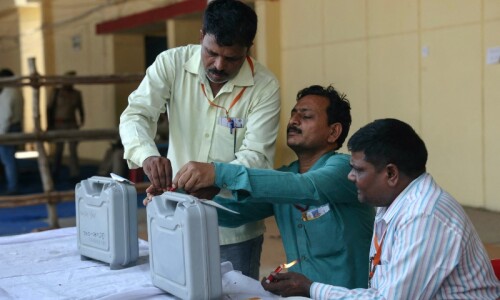NEW DELHI — The Election Commission of India (ECI), long seen as the impartial custodian of the world’s largest democracy, is under heavy fire from the opposition, which alleges large-scale rigging in last year’s general elections.
The criticism — the first of its kind against the ECI in independent India’s history — has been led by Rahul Gandhi, the 55-year-old opposition leader, who has accused the commission of “manipulating voter rolls” to benefit Prime Minister Narendra Modi’s Bharatiya Janata Party (BJP).
Rahul Gandhi’s Allegations
Gandhi, whose Congress party lost dozens of seats in the 2024 parliamentary elections, says his party has uncovered evidence of irregularities after weeks of manually reviewing registration lists.
He claims:
- Duplicate and bulk registrations from single dwellings and bogus addresses.
- Multiple voting by the same individuals.
- Over 100,000 “fake” votes in one constituency that Congress lost by just 30,000 ballots.
Calling one of the cases an “open and shut example,” Gandhi has demanded that the ECI release digital voter rolls so political parties and citizens can audit them.
“Our demand from the ECI is clear — be transparent and release digital voter rolls so that people and parties can audit them,” Gandhi said earlier this month.
ECI Pushes Back
The commission has strongly denied the charges, dismissing them as “false and misleading.”
India’s Chief Election Commissioner Gyanesh Kumar said the institution would “never back down from its constitutional duties” and accused opposition leaders of politicizing the ECI to target voters.
“An affidavit must be submitted or an apology to the nation must be made — there is no third option,” Kumar said, demanding Gandhi provide proof under oath.
Why Now?
The controversy has flared as Gandhi launched a month-long “voter rights” rally in Bihar on Aug. 17, ahead of crucial state elections in October or November.
Opposition parties accuse the ECI of “mass disenfranchisement” after it ordered voters in Bihar to prove their citizenship within weeks — a demand critics say is designed to exclude the poor and marginalized, many of whom lack the required documents.
Political Stakes
Modi secured a historic third term in 2024, though his BJP fell short of an outright majority. With Bihar looming as a critical battleground, the credibility of India’s electoral system — and the ECI itself — has become a central flashpoint in the country’s politics

